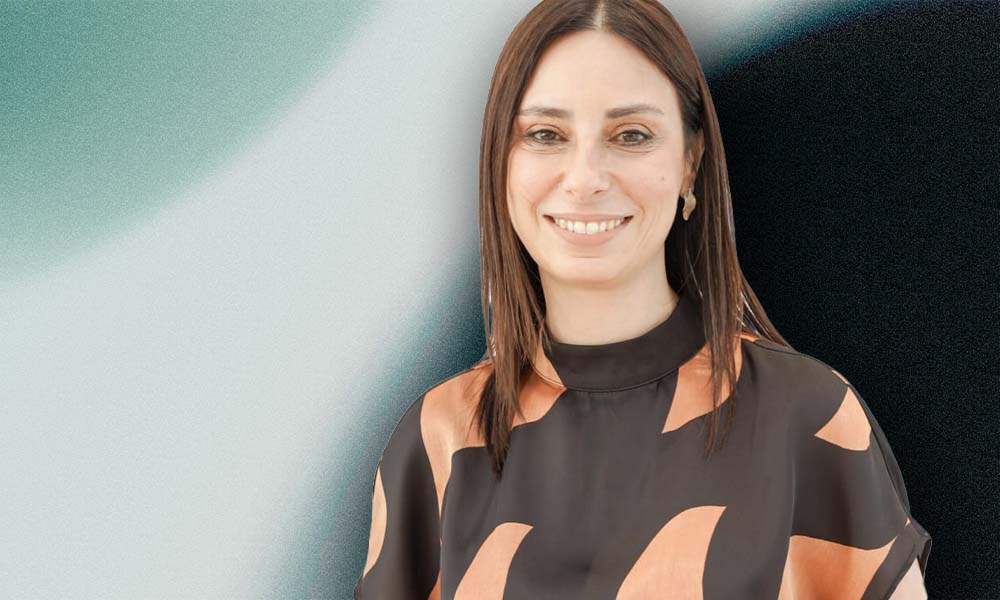Interview | Najla Asmar on the State of Mental Health in Israel’s Arab Community

Najla Asmar is the founder and director of the Ma’ana Center for Mental Health, a department of Nazareth Hospital in Israel. Founded in 2006, the center is today the largest mental health facility serving the Arab population in Israel.
An Arab Christian born in Haifa, Asmar has a bachelor’s degree in psychology from the University of Haifa, her master’s in clinical psychology from Tel Aviv University, and is certified in psychoanalytic and psychological treatment. She spoke with Senior Editor Laurence Wolff about the state of mental health among Israeli Arabs and efforts to reach out more effectively to this community.
What is the status of mental health in the Arab community in Israel?
Over the past decades—and especially since October 7—we have seen a significant deterioration in mental health across Arab society here. These are not isolated traumas but a layered, collective experience affecting all age groups.
A report published in February 2025 revealed alarming data: 54 percent of Arab citizens showed symptoms of PTSD, 49 percent reported depression, and 90 percent of those needing care did not receive it.
This crisis is driven by multiple factors: political isolation, persistent poverty, rising violence in Arab towns, repeated exposure to war-related trauma, a growing sense of alienation, and a severe lack of accessible mental health services.
At the Ma’ana Center, and across the Arab community, we see a sharp rise in anxiety, emotional numbness and somatic or physical symptoms—especially among children and young adults. Many clients express fear about speaking openly, in the face of worry about privacy and repercussions.
Access to care is a major challenge. Arab citizens make up over 21 percent of Israel’s population, yet only 4 percent of mental health professionals are Arab, 1.4 percent of clinical psychologists are Arab, and 1.9 percent of psychiatrists are Arab. Entire Arab towns lack even a single Arabic-speaking psychiatrist or psychologist.
This shortage of Arabic-speaking professionals means many Arab citizens either delay seeking care or receive treatment from clinicians who cannot communicate in their language, making therapy less effective and trust harder to establish. Most psychiatric hospitals, crisis centers and mental health facilities are located in Jewish-majority areas, where staff often do not speak Arabic or understand the cultural context of mental health.
Tell me more about the Ma’ana Center.
In 2006, while working as a clinical psychology intern in Haifa and often visiting Nazareth, the largest Arab city in northern Israel, I realized there was a major gap in mental health care for the Arab population in that city. Haifa had many facilities, and I spent 15 years working there, but Nazareth had no mental health structure at all.
That realization, together with my experience during the Second Lebanon War when bombs fell near our homes, led me to establish the Ma’ana Center as part of Nazareth Hospital. Today, Ma’ana is the largest mental health center in Israel serving the Arab population. The name carries a dual meaning: in both Arabic and Hebrew, ma’ana translates to “meaning” and “response,” and the name also serves as an acronym for “Mental Aid and Guidance Center” in Hebrew (מרכז עזרה נפשית והדרכה). This reflects our vision of offering both clinical care and community-based interventions.
“While we feel deep empathy and connection to what is happening in Gaza and the West Bank, expressing these feelings openly can feel unsafe. We sometimes call this ‘our silence.’”
In the past year alone, Ma’ana has served 350 families and held 7,700 therapy sessions, not only with individuals but also with small groups and families. Yet the demand is growing—more than 300 people are currently on our waiting list. We provide treatment for a wide range of emotional and developmental challenges, including depression, anxiety and PTSD using various therapeutic modalities tailored to our clients’ needs.
When we began, there was very little funding and a significant stigma around mental health. Today, the center is fully recognized and employs 40 Arabic- speaking mental health professionals, including 10 clinical psychologists and several interns in clinical psychology. Through this journey, I have learned that realizing a vision requires taking risks, making timely decisions, and demonstrating leadership.
Since the outbreak of the Gaza war in October 2023, awareness of Ma’ana has grown as we have expanded our activities to meet increasing needs. We began receiving support from new partners, including the UJA-Federation of New York (UJA), the Social Venture Fund (SVF), the Edmond de Rothschild Foundation, and the Qudra Network, an Arab philanthropic initiative that connected us with additional donors and resources.
What are the approaches and challenges at the Ma’ana Center?
At Ma’ana, we take a context-aware approach to therapy. We see each individual not just through their internal conflicts but also within the broader framework of their family, culture, community and political reality. This perspective integrates both inner and outer worlds—understanding that personal struggles are often deeply connected to collective challenges, such as poverty, discrimination, or war.
This model helps patients feel understood not only as individuals but also as members of a community navigating complex external pressures. It allows us to address both the personal and social dimensions of mental health.
We also have a strong emphasis on elder care, and we combine therapeutic practices with an understanding of cultural values in Arab society, which include the central role of family resilience. In our culture, caring for older family members within the home is highly valued, and institutionalizing elderly people is viewed as undesirable unless absolutely necessary. Supporting families to provide care, while equipping them with the tools and knowledge they need, is therefore an essential part of our work.
I’ve read reports of problems young Arabs face, especially males dropping out of school and engaging in violence within the Arab community. How can this problem be approached?
The challenges facing Arab youth, especially young men, are not new—but what has changed is the scale and intensity of violence in recent years. In the first half of 2025, 140 Arab citizens were killed, compared to 108 during the same period in 2024—a troubling and steady escalation.
Many of these killings are linked to organized crime networks operating within Arab towns. Young people, sometimes even under the age of 18, are particularly vulnerable. A lack of economic opportunities, limited access to quality education, and weakened community structures leave them exposed to recruitment by these networks, where they are often drawn into becoming “soldiers” in cycles of crime and violence.
There are also systemic challenges. Only about 10 percent of murder cases in Arab communities are solved, which deepens mistrust between the community and law enforcement. Structural neglect, limited investment in community safety, and inconsistent enforcement have all contributed to the worsening situation.
Addressing this problem requires a multilayered approach—improving educational opportunities, investing in mental health and youth services, strengthening community resilience, and ensuring equitable law enforcement. Without tackling both the social and structural causes, it will be very difficult to break the cycle of violence.
Tell me about the challenge of “silence.”
For many Arab citizens of Israel, there is a dual identity: We identify as Palestinians, while also being Israeli citizens who want to flourish and belong. This duality becomes extremely complex during times of war. While we feel deep empathy and connection to what is happening in Gaza and the West Bank, expressing these feelings openly can feel unsafe.
We sometimes call this “our silence”—the tension between our identity, our personal emotions and the constraints on public expression. Many people fear consequences for speaking out, even on social media. This creates an emotional burden, as individuals navigate private grief and empathy within an environment where open dialogue is limited.
How does this affect you personally?
Living as a Palestinian citizen of Israel means carrying multiple, often conflicting identities. My family’s story is deeply tied to this complexity. My grandfather, a doctor, built an apartment building in Haifa before 1948, but during the establishment of Israel, he was forced out without compensation. Years later, my family managed to return and live in a single room of the building he had built. After many years, we were able to buy back the entire building, and today I live in one of its apartments.
For many Arab citizens, including myself, the past is never far away. When we see what is happening in Gaza or the West Bank, it can feel as though we are reliving our own history. This is what we could call “intergenerational trauma”—wounds carried forward through memory and experience.
My mother told me how her brother died because the medicine he needed had already been given by my grandfather to others in the community. This story stayed with me, shaping my belief in caring for others while also showing the deep sacrifices families have endured.
At the same time, saying that I am both Palestinian and an Israeli citizen, while advocating for pluralism and dialogue, can be perceived as subversive. Demonstrating publicly also feels unsafe. This caution creates a constant sense of tension.
Despite these challenges, I remain committed to the vision of pluralism—creating a society where diverse identities, religions and narratives can coexist and where dialogue replaces silence.
What about the new generation of Israeli Arabs?
I feel deep concern for the new generation. Many young people aspire to pursue higher education and build a better future, and there is incredible potential among them. At the same time, many face significant mental health, economic and social obstacles.
In cities like Nazareth, we see visible signs of neglect—highly inadequate basic infrastructure, high poverty rates and limited community resources. This affects young people’s sense of hope and belonging. I want to remain optimistic and believe that when we reach the lowest point, we can find the strength to rise again. Holding onto even a small piece of hope feels essential right now.
Are some of your friends and colleagues leaving the country?
Some colleagues and friends are leaving when they have the opportunity, often through academic fellowships or family connections abroad. But for most of us, this is not an option. For example, I do not hold a visa that would allow me to relocate, and many in the Arab community face similar constraints. While some seek opportunities elsewhere, the majority remain here, working to create change from within.
Top image: Najla Asmar


